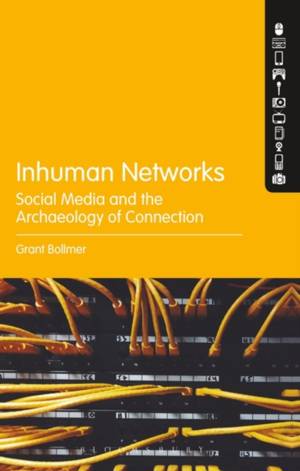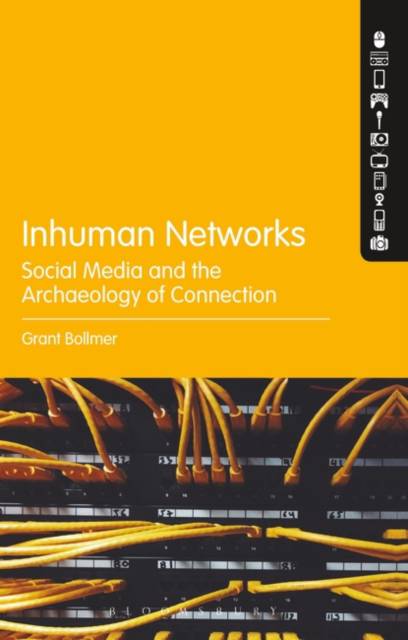
Bedankt voor het vertrouwen het afgelopen jaar! Om jou te bedanken bieden we GRATIS verzending (in België) aan op alles gedurende de hele maand januari.
- Afhalen na 1 uur in een winkel met voorraad
- In januari gratis thuislevering in België
- Ruim aanbod met 7 miljoen producten
Bedankt voor het vertrouwen het afgelopen jaar! Om jou te bedanken bieden we GRATIS verzending (in België) aan op alles gedurende de hele maand januari.
- Afhalen na 1 uur in een winkel met voorraad
- In januari gratis thuislevering in België
- Ruim aanbod met 7 miljoen producten
Zoeken
€ 81,45
+ 162 punten
Uitvoering
Omschrijving
Social media's connectivity is often thought to be a manifestation of human nature buried until now, revealed only through the diverse technologies of the participatory internet. Rather than embrace this view, Inhuman Networks: Social Media and the Archaeology of Connection argues that the human nature revealed by social media imagines network technology and data as models for behavior online. Covering a wide range of historical and interdisciplinary subjects, Grant Bollmer examines the emergence of "the network+? as a model for relation in the 1700s and 1800s and follows it through marginal, often forgotten articulations of technology, biology, economics, and the social. From this history, Bollmer examines contemporary controversies surrounding social media, extending out to the influence of network models on issues of critical theory, politics, popular science, and neoliberalism. By moving through the past and present of network media, Inhuman Networks demonstrates how contemporary network culture unintentionally repeats debates over the limits of Western modernity to provide an idealized future where "the human+? is interchangeable with abstract, flowing data connected through well-managed, distributed networks.
Specificaties
Betrokkenen
- Auteur(s):
- Uitgeverij:
Inhoud
- Aantal bladzijden:
- 304
- Taal:
- Engels
Eigenschappen
- Productcode (EAN):
- 9781501340178
- Verschijningsdatum:
- 22/02/2018
- Uitvoering:
- Paperback
- Formaat:
- Trade paperback (VS)
- Afmetingen:
- 152 mm x 229 mm
- Gewicht:
- 390 g

Alleen bij Standaard Boekhandel
+ 162 punten op je klantenkaart van Standaard Boekhandel
Beoordelingen
We publiceren alleen reviews die voldoen aan de voorwaarden voor reviews. Bekijk onze voorwaarden voor reviews.









